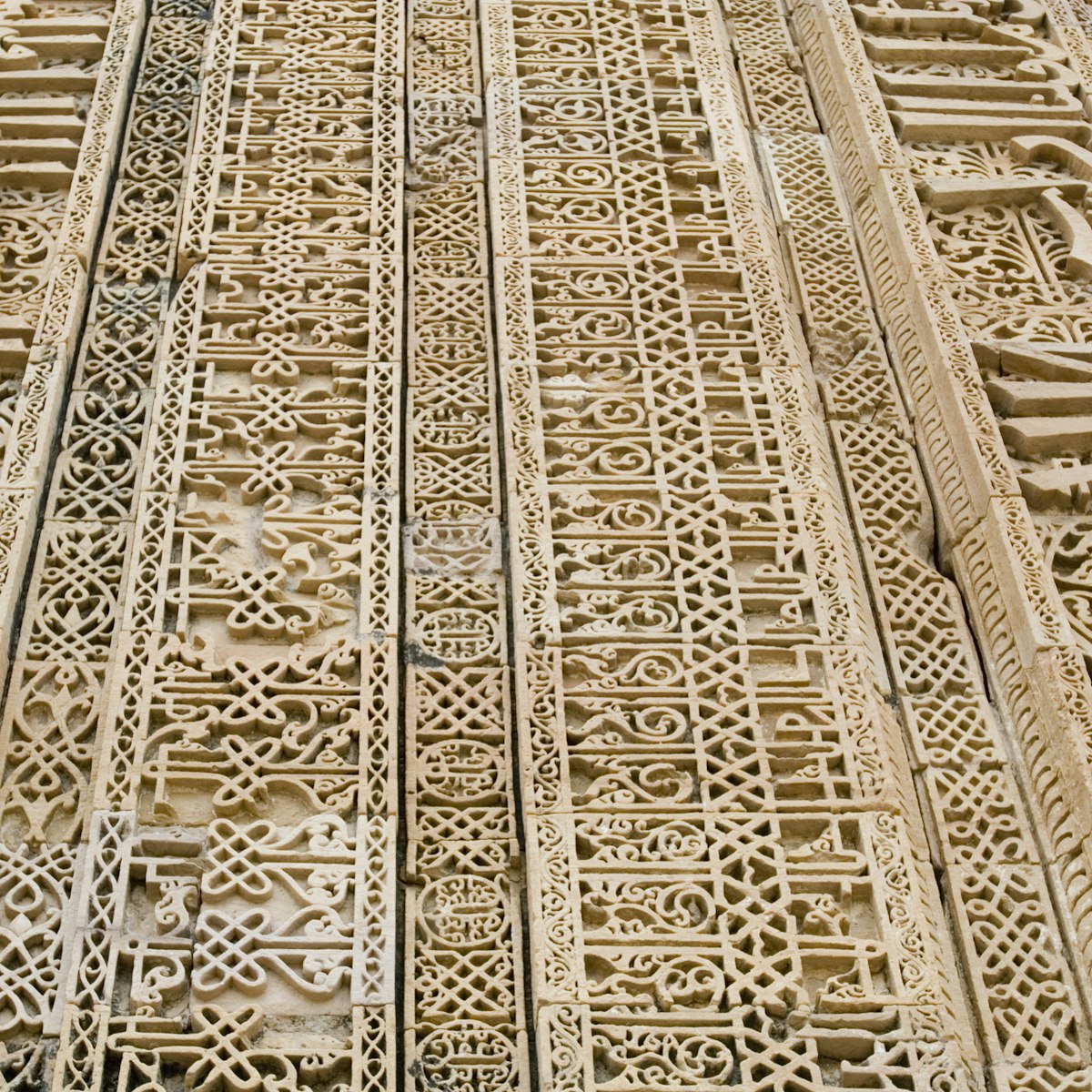This is the tomb of Sufi saint Khwaja Muin-ud-din Chishti, who came to Ajmer from Persia in 1192 and died here in 1236. The tomb gained its significance during the time of the Mughals – many emperors added to the buildings here. Construction of the shrine was completed by Humayun, and the gate was added by the Nizam of Hyderabad. Mughal emperor Akbar used to make the pilgrimage to this dargah from Agra every year.
You have to cover your head in certain parts of the shrine, so remember to take a scarf or cap – there are plenty for sale at the colourful bazaar leading to the dargah, along with floral offerings and delicious toffees.
The main entrance is through Nizam Gate (1915). Inside, the green and white mosque, Akbari Masjid, was constructed in 1571 and is now an Arabic and Persian school for religious education. The next gate is called the Shahjahani Gate, as it was erected by Shah Jahan, although it is also known as 'Nakkarkhana', because of the two large nakkharas (drums) fixed above it.
A third gate, Buland Darwaza (16th century), leads into the dargah courtyard. Flanking the entrance of the courtyard are the degs (large iron cauldrons), one donated by Akbar in 1567, the other by Jehangir in 1631, for offerings for the poor.
Inside this courtyard, the saint’s domed tomb is surrounded by a silver platform. Pilgrims believe that the saint’s spirit will intercede on their behalf in matters of illness, business or personal problems, so the notes and holy string attached to the railings around are thanks or requests.
Pilgrims and Sufis come from all over the world on the anniversary of the saint’s death, the Urs, in the seventh month of the Islamic lunar calendar. Crowds can be suffocating.
Bags must be left in the cloakroom (₹10 each, with camera ₹20) outside the main entrance.

